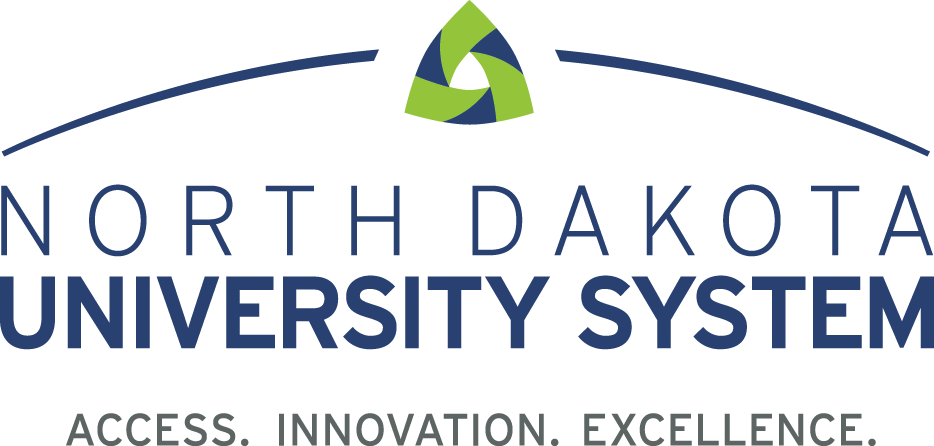
22 May NDUS institutions do well in national cyber challenge
Seven out of the 11 North Dakota University System colleges and universities recently fielded candidates for a nationwide competition that aims to get students engaged in cybersecurity.
The SANS Institute’s Cyber FastTrack program has three phases. The first phase – Assessment – saw more than 13,000 students from 25 states participate. According to SANS Institute CyberStart Program Director Mandy Galante, the competition gives students the opportunity to test their aptitude.
This phase included increasingly difficult challenges representing realistic threat scenarios that measured participant’s existing knowledge, problem-solving skills, and potential for a career in cybersecurity.
“We recruit college students for Cyber FastTrack by reaching out through emails directly to students and through emails to college presidents and cybersecurity professors,” Galante stated. “The students interact through three stages of Cyber FastTrack: Assess Stage 1 had 15 challenges with varying degrees of difficulty. Students had a month to attempt those challenges and those that solved a high number found out May 20 if they qualified for Stage 2 Game. Those who qualified will play Game until July when, based on their Game scores and an Aptitude assessment, we will make another selection for Stage 3 Essentials. CyberStart Essentials is a full online course in the basics of cybersecurity. The final selection will be based on scores for all 3 stages – the finalists will win scholarships for advanced SANS training courses or $500 scholarships for use at their college.
Nearly 70 college students from nine institutions in the state went through the assessment phase with the following representation: Bismarck State College, six students; Minot State University, seven students; North Dakota State College of Science, six students; North Dakota State University, six students; University of North Dakota, 10 students; Valley City State University, five students; and Williston State College, 12 students. Two other institutions in the state – Cankdeska Cikana Community College and University of Mary, had respective participation with 12 and three students.
Among the 10 quarterfinalists systemwide were five from WSC. Professor of Information Technology Ken Quamme said that the competition was good for students as it helped set a benchmark for their understanding of the foundations of cybersecurity.
“It helps students determine if cybersecurity in conjunction with Information Technology and Automation might be a passion of theirs,” Quamme said. “This competition is not a requirement for any of my courses. These students are competing because they are motivated and want to explore opportunities to find the right fit for them in their career and technical education career paths.”
“This competition benefits WSC in many ways,” he added. “It helps set a benchmark in course offerings and skill sets that student might need to be successful in cybersecurity. It also allows the program to increase offerings and any new advancements in cybersecurity and what industry partners need in terms of student skill sets.”
According to Galante, the overall goal was to help students identify their talents and to provide a pathway into the cyber workforce.
“We believe that Cyber FastTrack can help expand population studying cybersecurity, including reaching under-represented populations such as women, students of color and students in rural communities,” she said. “We do consider it to be successful! You will see that the 2017 Cyber FastTrack already showed positive data and the initial data from this 2019 Cyber FastTrack is even more encouraging.”
This year, the total number of college students who participated in 2019 Cyber FastTrack totaled 13,289, with women making up 4,217 (32 percent) of all players. Only about 2,400 (18 percent) of all participants made it to the quarter-finals, with only 882 (6.6 percent) being identified as “highly adept.”
Alan Paller, Director of Research for SANS Institute and President of the SANS Technology Institute, noted that “Something is going very right for cybersecurity in North Dakota.”
“North Dakota had 69 college students test their cyber aptitude in the CyberStart Assess phase of Cyber FastTrack,” Paller said. “That includes 10 women. What is most impressive is that 10 students demonstrated sufficient aptitude to be selected as quarterfinalists and to move on to the next round toward national recognition and the $2.5 million in scholarships. More than five percent of the N.D. students in Cyber FastTrack solved the most difficult challenges, putting them in the ‘Highly Adept’ category of participants. Even better news, over 32 percent went beyond what we would consider ‘puzzle fun’ and solved challenges that required the application of cybersecurity specific techniques and concepts.”
Participants have now moved into the next phase, CyberStart Game, and will compete from May 20 to June 28.


